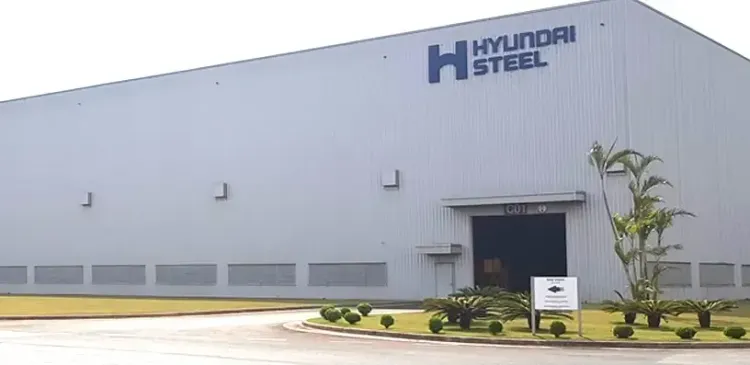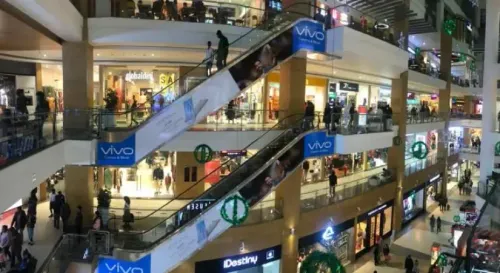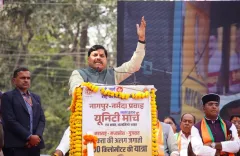Hyundai Steel to Temporarily Suspend Rebar Production Due to Low Demand

Synopsis
Key Takeaways
- Hyundai Steel temporarily halts rebar production.
- Shutdown is due to low market demand.
- Other rebar plants will remain operational.
- Emergency management mode adopted due to challenges.
- Executives have taken a pay cut to manage costs.
Seoul, March 27 (NationPress) Hyundai Steel, the second-largest steel manufacturer in South Korea by sales, announced on Thursday that it will temporarily halt operations at one of its three domestic steel reinforcement bar (rebar) plants due to a decline in demand.
The rebar facility located in Incheon, just west of Seoul, will be shut down for the entire month of April, according to a spokesperson from the company. The other two rebar plants will continue their operations, as reported by Yonhap news agency.
"This closure is not part of a routine maintenance schedule but rather a production cut prompted by a declining market situation," the spokesperson stated. "We made the decision to assist in normalizing the rebar market, even if it means incurring immediate losses."
The Incheon facility has an annual production capacity of around 1.5 million tons of rebar and 2 million tons of steel sections.
The temporary cessation of operations at Hyundai Steel's rebar plant aims to alleviate the oversupply in the market, where steel manufacturers are facing falling product prices due to increased competition, the spokesperson added.
On March 14, Hyundai Steel adopted an emergency management mode in light of rising challenges, which include recent steel tariffs imposed by the Trump administration and ongoing disputes with unionized workers.
All senior executives accepted a 20 percent pay reduction starting March 13, while the company is also considering a voluntary retirement program for its employees.
Since September, the company has been involved in prolonged wage negotiations with its union, which has led to numerous strikes that have disrupted production.
On February 24, the firm had already suspended operations at its cold-rolled steel facility in Dangjin, located approximately 80 kilometers southwest of Seoul, following a months-long strike by workers advocating for pay increases.
The pickling line/tandem cold mill (PL/TCM) facility is a crucial component of the company's integrated steel mill in Dangjin.
The company's challenges have been further complicated by U.S. President Donald Trump's decision to enforce a 25 percent tariff on steel imports to the United States, which includes products from South Korea.









